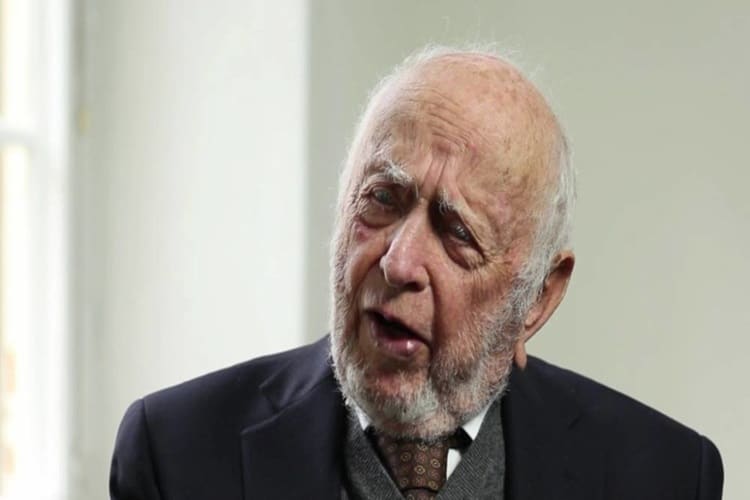Celebrating life and legacy of Douglass North

Douglass North (November 5, 1920 – November 23, 2015) was an American economist known for his work in economic history. He was awarded the Nobel Memorial Prize in Economic Sciences in 1993
Life and Career
Douglass North was born on November 5, 1920, in Cambridge, Massachusetts, USA. He grew up in a family of academics and spent his formative years in the academic environment. Douglass North had a distinguished career in academia. He held various academic positions throughout his life. Notably, he served as a professor at the University of Washington, Rice University, Washington University in St. Louis, and the Hoover Institution at Stanford University.
North was a prominent figure in the field of institutional economics. He was known for his work on economic history, institutions, and their impact on economic development. His research focused on how institutions shape economic behavior and how changes in institutions affect societal development. In 1993, Douglass North was awarded the Nobel Memorial Prize in Economic Sciences, jointly with Robert William Fogel, for their work in economic history and their application of economic theory to the analysis of history.
North authored and co-authored numerous influential books and papers, including “Institutions, Institutional Change, and Economic Performance” and “Understanding the Process of Economic Change,” among others. His works significantly shaped the understanding of the role of institutions in economic development and history. Douglass North passed away on November 23, 2015, at the age of 95 in Michigan.
Award and Legacy
Douglass C. North was awarded the Nobel Memorial Prize in Economic Sciences in 1993. He received this prestigious honor for his pioneering work in economic history and institutional economics, which fundamentally transformed the understanding of economic and societal development.
Douglass North’s legacy in the field of economics is profound and enduring, he was a trailblazer in the field of institutional economics. He emphasized the role of institutions in economic development, arguing that the functioning of institutions significantly influences economic behavior and outcomes.
His work fundamentally altered the understanding of economic change by highlighting the importance of institutions, property rights, and governance structures in shaping economic progress. North’s theories and concepts greatly impacted economic theory and policy. His insights into the interplay between institutions and economic development remain foundational in shaping policies for economic growth and stability.
As a highly regarded academic, North’s work and ideas continue to be integral in the study of economic history, institutional economics, and the broader field of economics. He inspired a generation of economists and scholars to delve deeper into the role of institutions in economic dynamics.
North’s contributions have had a lasting impact on understanding the complexities of economic systems and development. His research and theories continue to influence both academic studies and policy discussions, shaping the understanding of how institutions affect societal progress and economic prosperity.
Observer Voice is the one stop site for National, International news, Sports, Editor’s Choice, Art/culture contents, Quotes and much more. We also cover historical contents. Historical contents includes World History, Indian History, and what happened today. The website also covers Entertainment across the India and World.
Follow Us on Twitter, Instagram, Facebook, & LinkedIn

